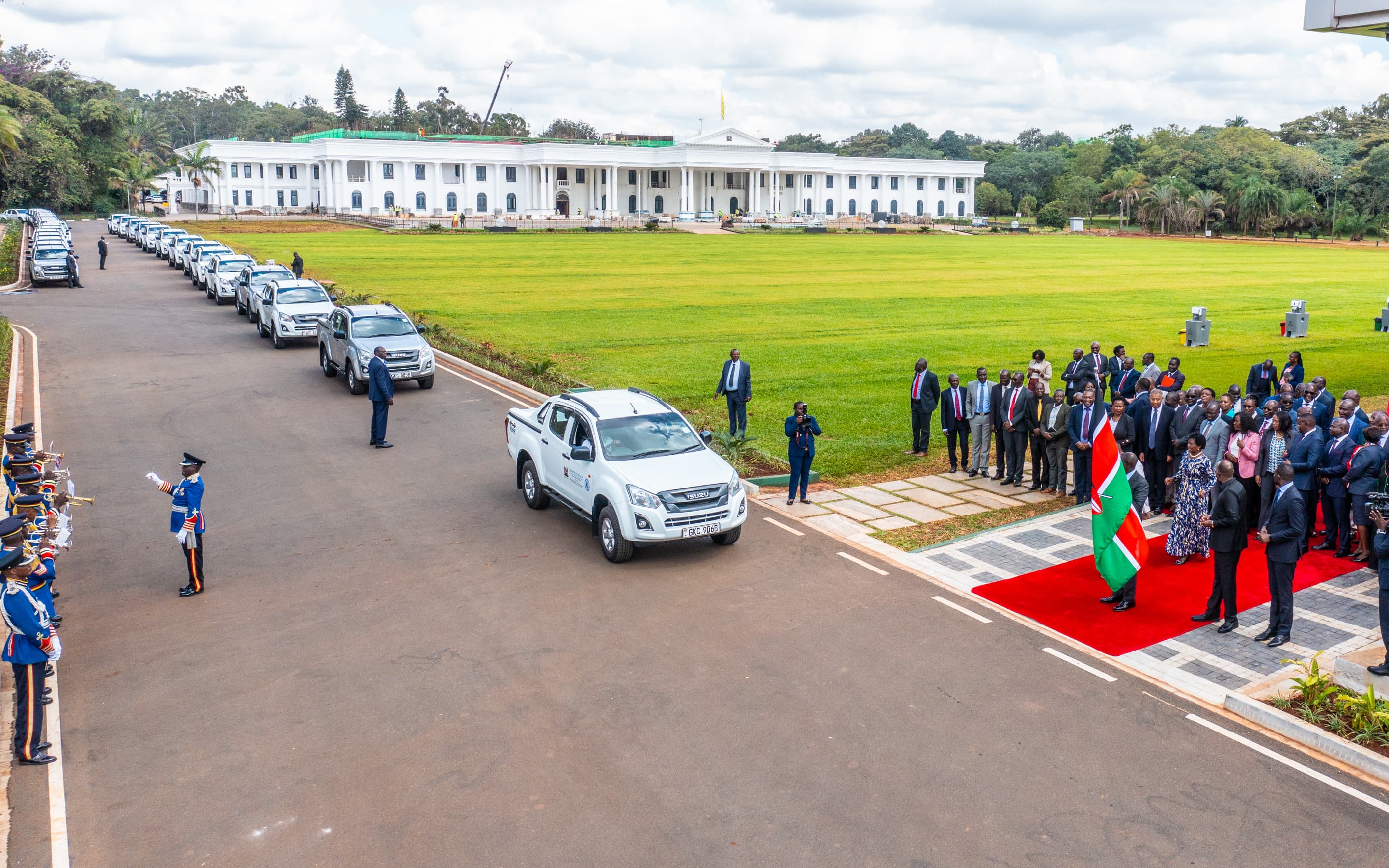

Kenya has made remarkable strides in strengthening public
health surveillance and emergency response systems, President William Ruto has said.
Ruto said this on Friday during the official handover of disease surveillance vehicles to the 47 county governments at State House, Nairobi.
The move seeks to enhance
public health surveillance and emergency response systems through collaborative
efforts and strategic investments.
“These vehicles not only enhance logistical capacity but
also symbolise the national government’s commitment to strengthening public
health systems and disease surveillance infrastructure at the grassroots level,
in line with the Bottom-Up Economic Transformation Agenda,” he said.
He further noted that among the achievements made include enhanced
preparedness measures, improved traveler screening at points of entry for early
detection of health threats, and timely activation of rapid response
mechanisms.
“We have also deployed digitised, integrated disease surveillance and event-based systems in all 47 counties, streamlining processes at both the facility and community levels," he said.
"Additionally, surveillance officers
and frontline responders have been trained and deployed across the country," the
president said.
He confirmed the significant expansion of molecular diagnostic capacity and improved referral systems in the regional laboratories.
He said that these efforts have reduced turnaround times for case confirmation
during outbreaks and enhanced the country’s ability to respond swiftly to
emerging health threats.
He reiterated the government’s commitment to protect the health and well-being of everyone within Kenya.
“As we continue to confront both
ongoing and emerging health challenges, we must remain unwavering in our
resolve to protect the health and well-being of everyone within our borders,” he
said.
He called for collaboration between the counties and the
national government to ensure the health of everyone within Kenya.
Ruto said county governments are the first line of defense in the country's health emergency preparedness and response efforts.
"It is through strong collaboration between the two levels of government that we will succeed in building a resilient, responsive and accountable health system, one that not only responds to crises but is also capable of preventing them.”











